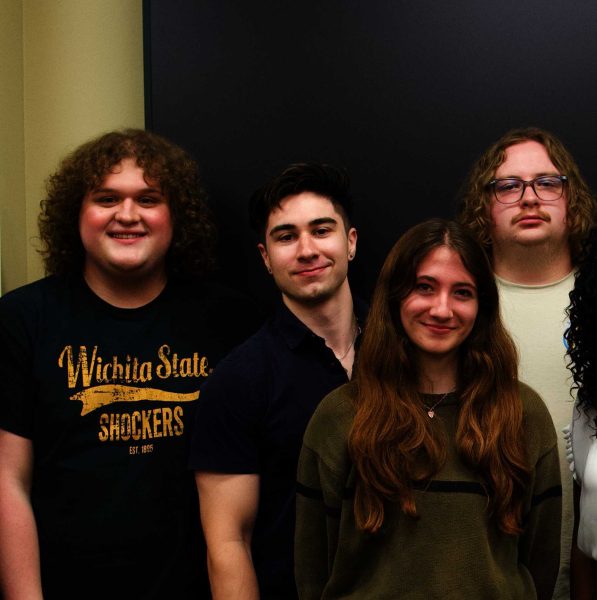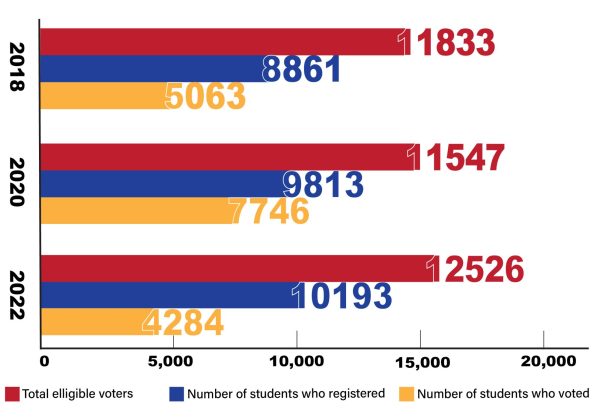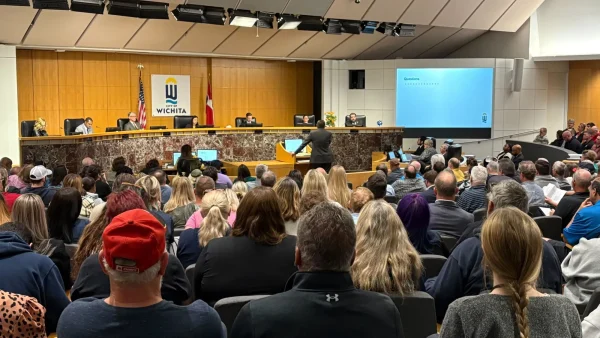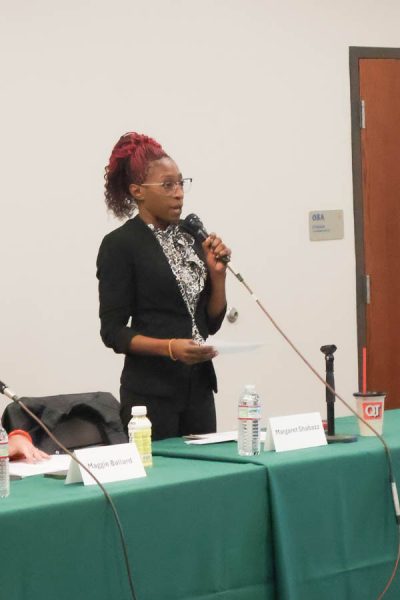Accreditation offers university chance at “self-reflection”
Wichita State is seeking re-accreditation with the Higher Learning Commission this fall.
Preparations for this review began four years ago with the formation of a work group of faculty and staff who represent the variety of educational areas sustained at WSU. Richard Muma, professor and chair of the Department of Public Health Services, and senior associate vice president for Strategic Enrollment Management, leads this group.
Muma said he is confident in the outcome of the review.
“There’s nothing I can see at this point that would cause our accreditation to be taken away,” he said.
However, none of this confidence would be present without the efforts of the work group meticulously reviewing and organizing all of the information WSU is required to present. The past few years have been an opportunity of intense self-reflection on the practices of WSU, examining our strengths and our weaknesses, and how we can improve on those areas.
“This whole process is about self-reflection,” said Elaine Bernstorf, professor of music education. “This is a verification that we are looking at our policies and our procedures and looking for ways to keep improving them. It’s kind of like when you sit down with your adviser. They want to make sure we’re on track and see what we do well and where we struggle and if we’re working on those areas.”
Online learning is now believed to be one of our strongest areas for this review
“We were cited in 2007 over online learning,” Muma said. “The prior president addressed funding concerns by pulling back on online teaching. Since then we have really worked on our infrastructure for it.”
Bernstorf did not hesitate to declare faculty as another area WSU excels in.
“They are well-qualified and they teach a lot of the classes,” Bernstorf said. “It’s very clear that our applied learning is very strong, and it’s been like that for a while.”
Of course, there are also some areas that WSU could improve on, Muma said.
“Expansion has stressed the university,” Muma said. “We’re working on better ways to communicate what we’re doing and why.”
Some of this communication could also be improved at the faculty to student level, and Muma also noted that “advising needs to be restructured.”
The Higher Learning Commission is one of six regional institutional accreditors in the U.S., and is responsible for accrediting universities in 19 states in the North Central region.
Institutions are evaluated based on 5 criteria: (1) Mission, (2) Integrity: Ethical and Responsible Conduct, (3) Teaching and Learning: Quality, Resources, and Support, (4) Teaching and Learning: Evaluation and Improvement, (5) Resources, Planning, and Institutional Effectiveness.
The team that reviews WSU is comprised of peer reviewers employed as faculty and administrators from other universities.
Once accredited, institutions are reviewed every 10 years to ensure they remain in compliance with the learning commission’s standards. Wichita State has been accredited since 1927.
Darren DeFrain, associate professor of English and director of the writing program, said the timing of this review is beneficial to the University.
“We’re a university in transition and that’s been happening very quickly, so the timing for this is good to help us address issues that have arisen from that that we may not have looked closely at yet,” he said.
The tangible result of these efforts is a 35,000 word, roughly 125-page document that provides a comprehensive overview of how WSU fulfills the HLC’s evaluation criteria.
This document contains more information than what is immediately visible. Since all statements are required to be supported with evidence, the document contains hundreds of hyperlinks.
Most of these were compiled and organized by Susan Matveyeva, associate professor and Shocker Open Access Repository Manager. Matveyeva said this evidence brings the total page count of the document to “two or 3,000, maybe more.”
The delivery method of this evidence makes the 2016 review unique from previous ones, as this is the first review that utilizes electronic documentation, Matveyeva said.
“At our last accreditation, the reviewers would come and we would have prepared a big room for them. There would be boxes on the floor, the tables, and the shelves,” Matveyeva said. “Libraries requested reports from departments and the reviewers would be given all of the paper. They didn’t have a chance to review any of this prior to visiting.”
Despite all the potential chaos that could have arisen during the HLC preparation process, several members of the work group praised Muma for making the process go as smoothly.
“I don’t think there’s a harder working person in this institution than Rick,” DeFrain said. “He helped make the goals clear and make this a more enjoyable experience than other committees I’ve been a part of.”
Student feedback was the most important resource for the work group to put their evaluations into perspective. Students who are wondering how they can assist with such reviews should be on the lookout for surveys and other outreach attempts to gather their comments about their experience at WSU.
The reviewers will be on campus Oct. 10 and 11, and WSU will receive its report by December or early January.
“It will be kind of a relief to be through with this review,” Muma said.

Nicole Byrne was a digital editor for The Sunflower. Despite her better judgment, she developed a crippling addiction to poetry. She self-medicates with...









